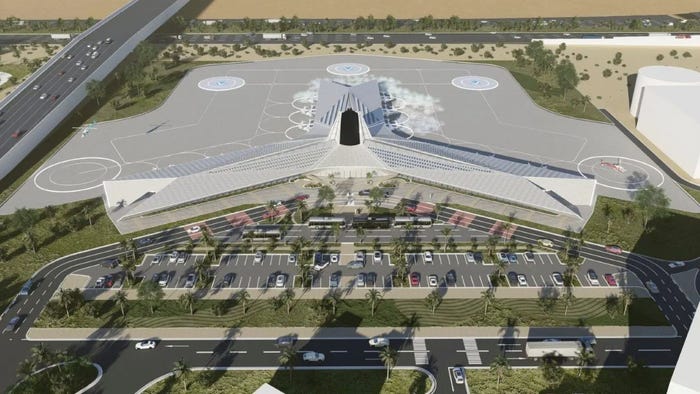Cruise CEO Resigns From GM’s Self-Driving CompanyCruise CEO Resigns From GM’s Self-Driving Company
Kyle Vogt steps down in the latest twist to the self-driving subsidiary’s story

The co-founder and chief executive of Cruise has resigned, following a tumultuous few weeks for the company.
General Motors’ self-driving subsidiary has faced a barrage of negative publicity following an accident involving one of its autonomous vehicles in San Francisco, and its response to the incident.
Now Kyle Vogt has stepped down, confirming the news on X, formerly known as Twitter. Posting on Nov. 19, Vogt said: “Today I resigned from my position as CEO of Cruise.
“The last 10 years have been amazing, and I’m grateful to everyone who helped Cruise along the way. The startup I launched in my garage has given over 250,000 driverless rides across several cities, with each ride inspiring people with a small taste of the future.
“Cruise is still just getting started, and I believe it has a great future ahead. The folks at Cruise are brilliant, driven, and resilient. They’re executing on a solid, multi-year roadmap and an exciting product vision. I’m thrilled to see what Cruise has in store next!
“To my former colleagues at Cruise and GM – you’ve got this! Regardless of what originally brought you to work on AVs, remember why this work matters. The status quo on our roads sucks, but together we’ve proven there is something far better around the corner.”
Although no new CEO has been announced yet, it is understood that Cruise’s executive vice president of engineering Mo Elshenawy will serve as president and CTO. He will work alongside chief administrative officer Craig Glidden.
Vogt’s departure is the latest twist in an astonishing couple of months where Cruise’s plans have unraveled spectacularly.
As recently as mid-September, Vogt told an investor conference that Cruise’s purpose-built Origin AV was “days away” from regulatory approval. This came on top of an ambitious expansion program in 2023 that had seen Cruise announce plans to branch out into a number of new cities, including Nashville, Houston and Dallas.
But trouble was brewing in its core hub of San Francisco. Having already been requested to cut its fleet in half by the California Department of Motor Vehicles following a couple of accidents, a further incident on Oct. 2 caused major problems.
This saw a pedestrian struck by a hit-and-run human-driven vehicle, propelling her into the path of a Cruise taxi, which then dragged her 20 feet along the road before coming to a halt, leaving her trapped and seriously injured.
As a result, Cruise had its permits to deploy driverless vehicles in California removed, due to an “unreasonable risk to public safety” amid suggestions it had not been fully transparent about the incident.
The company has subsequently paused all operations nationwide – of both driverless and manually operated vehicles – and embarked on an extensive review of all its procedures as it seeks to rebuild public confidence.
These have included a recall for its 950-strong fleet for a software update and suspension of production of the Origin.
Amid all the setbacks and upheaval, GM is understood to still be backing Cruise, despite the operation continually racking up heavy losses.
CEO Mary Barra told employees: “The board and I also want you to know that we are intensely focused on setting up Cruise for long-term success.
“Public trust is essential to this. As we work to rebuild that trust, safety, transparency and accountability will be our north stars.”
Vogt, meanwhile, wrote on X that he plans to spend time with his family and explore new ideas.
Like what you've read? For more stories like this on self-driving vehicles and other emerging technologies, sign up for our free daily email newsletter to stay updated!
About the Author
You May Also Like






